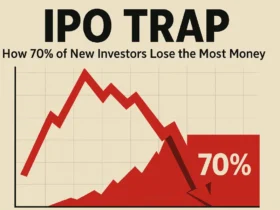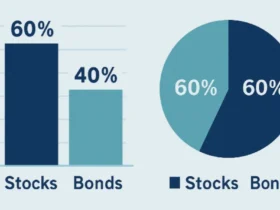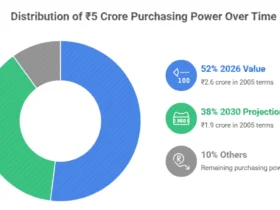Exploring the world of cryptocurrency, I find myself fascinated by Bitcoin and Ethereum. These two giants are more than just numbers and tech. They represent human creativity and vision that have shaped the decentralized financial world1.
In times of economic uncertainty, Bitcoin and Ethereum offer hope. They show how technology and financial freedom can come together. As I learn about these digital currencies, I’m captivated by their stories. These stories reveal the journeys that have brought us to this moment in the evolution of money2.
Key Takeaways
- Bitcoin and Ethereum are the two largest cryptocurrencies by market capitalization.
- Ethereum has transitioned from Proof-of-Work to Proof-of-Stake, leading to changes in its supply dynamics.
- The correlation between Bitcoin and Ethereum prices can vary, highlighting the importance of diversification.
- Ethereum’s blockchain has become a hub for decentralized applications and tokens, making it a significant player in the crypto ecosystem.
- Understanding the fundamentals of these digital currencies is crucial for making informed investment decisions.
Understanding Bitcoin and Ethereum Market Dominance
The cryptocurrency market has seen big changes in Bitcoin (BTC) and Ethereum (ETH) dominance over time3. Ethereum jumped over 6% while Bitcoin went up 1.5% on Thursday. This shows how fast and changing this industry is3. The total value of the global cryptocurrency market hit $1.34tn, a 2% increase, highlighting their growing role3.
Current Market Capitalization Comparison
Ethereum has been doing better than Bitcoin lately, with a 15% gain compared to Bitcoin’s 1.7% drop in the last week3. Ethereum’s market cap is over $434bn, with its price around $3,600, up 79% in a year3. On the other hand, Bitcoin’s dominance has fallen from over 90% to around 49.4% in June 20234.
Trading Volume Analysis
The ETH/BTC trading pair went up to 0.038 from 0.035 on Thursday. This shows Ethereum is getting stronger compared to Bitcoin3. Altcoins now hold 51.6% of the market, with Ethereum at 19.4%, and other altcoins at 12.8%4.
Market Share Distribution
Bitcoin’s dominance has been going down, with altcoins taking a bigger share4. Stablecoins like Tether and USD Coin, worth about $134 billion, are affecting Bitcoin’s dominance5. The market of over $2 trillion includes thousands of cryptocurrencies, with NFTs like VeeFriends and CryptoPunks adding variety5.
As the cryptocurrency market keeps changing, it’s key to understand Bitcoin and Ethereum’s dominance for investors, traders, and fans345.
Live Price Analysis: bitcoin vs ethereum,bitcoin to usd
In the fast-changing cryptocurrency market6, Bitcoin (BTC-USD) is at $98,536.67, up 3.30%6. Ethereum (ETH-USD) is at $3,646.14, with a 2.46% increase6. Ripple (XRP-USD) has seen a big jump of 20.42% to $1.75806. Dogecoin (DOGE-USD) and Cardano (ADA-USD) also saw significant gains.
7Bitcoin hit an all-time high of $99,588 last week but then fell. It hit a low of $90,791 on Tuesday and bounced back to around $96,200 by Friday7. Ethereum rallied 9.8% and closed above $3,454, trading slightly down around $3,560 by Friday7. Ripple closed above $1.40, rallied 10.6% until Thursday, and traded around $1.54 by Friday7.
7Bitcoin’s dominance shows strong investor interest in the leading digital currency7. Stablecoins, pegged to the US Dollar (USD), are key for investors in the cryptocurrency world.
| Cryptocurrency | Price (USD) | 24-Hour Change |
|---|---|---|
| Bitcoin (BTC) | $98,1108 | +0.30%8 |
| Ethereum (ETH) | $3,639.916 | +2.49%6 |
| Ripple (XRP) | $1.75806 | +20.42%6 |
| Dogecoin (DOGE) | $0.4235206 | +6.31%6 |
| Cardano (ADA) | $1.09246 | +10.10%6 |
8Bitcoin’s market cap is $1.91 trillion USD, with a fully diluted market cap of $2.03 trillion USD8. Its 24-hour trading volume is $47.30 billion USD8. The circulating supply is about 19.79 million BTC, with a maximum of 21.00 million BTC8. Bitcoin’s highest price was $99,800 USD8.
8The current Bitcoin price is $98,110 USD, with a 0.30% increase in 24 hours8. Its price has dropped by -2.54% in the last week but has risen by 31.93% in the past month. It has increased by 159.11% over the last year8. Bitcoin’s lowest price was 2 USD on Oct 20, 20118. It is estimated to be 2.93% volatile, with a buy signal for today and the week, and a strong buy signal for the month8.
8Bitcoin’s trading volume in the last 24 hours is $47.30 billion USD, and its current market capitalization is $1.94 trillion USD8.
Blockchain Technology Fundamentals
Blockchain technology is changing the digital currency world. It’s a decentralized, digital ledger that records transactions across many computers. This tech is key for cryptocurrencies like Bitcoin and Ethereum, making record-keeping secure and transparent without a central authority.
Consensus Mechanisms
The blockchain network uses consensus to check and approve transactions. Bitcoin uses Proof of Work (PoW), where miners solve puzzles to add blocks. Ethereum, however, uses Proof of Stake (PoS), where validators stake their tokens to validate, making it less energy-intensive.
Network Architecture Differences
Bitcoin and Ethereum have different architectures. Bitcoin is mainly a digital currency, used for transactions and as a store of value. Ethereum, though, is a platform for digital currency, smart contracts, and dApps, focusing on value movement and transaction facilitation.
Smart Contract Capabilities
Ethereum stands out because it supports smart contracts. These contracts can execute automatically, making transactions and exchanges easier. This has led to the growth of DeFi, NFTs, and other innovative projects on Ethereum.
Bitcoin and Ethereum are both improving. Bitcoin has introduced Taproot for smart contracts and is working on the Lightning Network for faster transactions. Ethereum has moved to Proof of Stake, making it more efficient and scalable. The future of these cryptocurrencies is still being discussed, with many wondering about their place in the global financial system.
Investment Performance Metrics
Investors keep a close eye on and to make smart choices about digital currencies9. The launch of Bitcoin’s ETF in January 2024 brought in 670,000 BTC, worth $47 billion, in the first month9. On the other hand, Ethereum’s ETF saw outflows of about 170,000 ETH in its first 30 days, ending on July 23, 20249.
The effect of these ETF launches was big. Bitcoin’s ETF made up about 3.2% of Bitcoin’s total supply in the first month9. Ethereum’s ETF was 2.2% of its circulating supply in the same time9. This change led to big outflows from funds like Grayscale’s Bitcoin and Ethereum Trusts. Investors moved to the cheaper ETF options9.
| Metric | Bitcoin | Ethereum |
|---|---|---|
| Price Change (24h) | +3.39% | +2.46% |
| Market Cap | $1.95T | $439.134B |
| Fully Diluted Valuation | $2.07T | N/A |
| 24-hour Trading Volume | $17.50B | $26.9B |
| Market Dominance | 147.24% | 71.52% |
Bitcoin ETF saw strong demand and interest after launch, with big growth in assets under management (AUM) for various issuers in the first month9. Ethereum ETF, however, showed more cautious interest from investors, with flat AUM growth for other issuers in the same period9. Bitcoin’s price went up by about 20% since the ETF’s start, while Ethereum’s price dropped by 18% after its ETF launch9.
When looking at performance, it’s key to consider and market dynamics10. The correlation between Bitcoin and Ethereum is 0.95, showing little diversification benefit10. Bitcoin is expected to have 1.13 times less return on investment than Ethereum over 90 days, but it’s 1.06 times less risky in historical volatility10. Ethereum, on the other hand, is generating about 0.38 of returns per unit of risk over the same time10. These metrics help investors make informed choices about their 10.

Digital Currency Trading Platforms and Exchanges
In the world of cryptocurrencies, there are many platforms and exchanges to choose from. These places help people buy, sell, and trade different digital currencies. Bitcoin11 and Ethereum11 are two of the most popular ones.
Popular Exchange Comparisons
Coinbase is the top choice for trading many cryptocurrencies11. Crypto.com is great for mobile trading, supporting over 350 cryptocurrencies11. Abra is the best for managing wealth, serving clients in 150+ countries11.
Kraken is known for its security, offering access to 200+ cryptocurrencies11. Binance.US is a close second in security, with low fees and cold wallet storage11. Cash App Investing is the best for Bitcoin trading in the U.S., offering commission-free trades11.
Trading Fees Analysis
Trading fees vary across major exchanges. Coinbase charges between 0% and 3.99%12 and lists over 240 cryptocurrencies12. Gemini’s fees range from 0.5% to 3.49%12 and offers over 70 cryptocurrencies12.
Kraken’s fees are from 0.16% to 5%12 and has access to over 300 cryptocurrencies12. Crypto.com’s fees are 0% to 2.99%12 and supports over 350 cryptocurrencies12.
Security Features
Security is crucial for crypto traders and investors. Kraken and Binance.US use strong security like two-factor authentication and cold storage11. These measures protect user funds and ensure the safety of their crypto holdings.
| Exchange | Trading Fees | Cryptocurrency Selection | Staking/Rewards Program |
|---|---|---|---|
| Coinbase | 0% – 3.99% | 240+ cryptocurrencies | Up to 12% APY |
| Gemini | 0.5% – 3.49% | 70+ cryptocurrencies | Polygon (MATIC), Ether (ETH) |
| Kraken | 0.16% – 5% | 300+ cryptocurrencies | Not available in the U.S. |
| Crypto.com | 0% – 2.99% | 350+ cryptocurrencies | Not available in the U.S. |
| Fidelity Crypto | 1% spread | 3 cryptocurrencies | Not available |
| InteractiveBrokers Crypto | Up to 1% | 4 cryptocurrencies | Not available |
The table shows a detailed comparison of popular digital currency trading platforms and exchanges in the U.S. It helps traders and investors choose the right platform for their needs and goals.
Cryptocurrency Storage Solutions
The world of digital currencies is growing fast. This means we need safe ways to store our virtual money. Cryptocurrency wallets are key for managing and protecting your digital assets. They help you send, receive, and store digital currencies and blockchain technology13.
Crypto wallets vary, each with its own good and bad points. Hardware wallets, or “cold wallets,” are physical devices that keep your private keys offline. This makes them very secure. These wallets can cost up to $14913. Investors who hold a lot of crypto wallets often choose them for extra safety13.
Software wallets, or “hot wallets,” are free and easy to use. You can find them in apps or on websites. They’re great for managing your digital assets but are connected to the internet. This makes them more at risk for cyber threats13.
Paper wallets are another option. They involve printing your private keys and public addresses on paper. This method is very secure but can be tricky to use. It’s not the best for beginners in the digital currencies world13.
Security is key when it comes to crypto wallets. Seed phrases are important. They are random combinations of words that help you get back into your account if you lose your device13.
Custodial wallets, where a third party holds your private keys, might seem easy. But they’re not good for storing a lot of digital currencies. They’re more at risk for hacking and you lose control over your money13.
Choosing the right cryptocurrency storage depends on what you want to achieve, how safe you want to be, and how much digital currencies you have. Cold wallets are the safest but might not be as easy to use for everyday transactions. Hot wallets are convenient but need careful security to keep your money safe13.
| Wallet Type | Pros | Cons |
|---|---|---|
| Hardware Wallets (Cold Wallets) | Highly secure offline storage Suitable for large cryptocurrency holdings | Require a physical device Can be costly (up to $149)13 |
| Software Wallets (Hot Wallets) | Convenient and often free to use Accessible through apps or web platforms | Connected to the internet, potentially less secure May have limited cryptocurrency support |
| Paper Wallets | Highly secure offline storage No reliance on digital devices | Less user-friendly for transactions Require additional steps to access funds |

Keeping your crypto wallets safe and easy to use is important. Knowing about the different storage options and their good and bad points helps you make the right choice. This way, you can protect your digital currencies and enjoy the growing world of blockchain technology13.
Mining and Network Validation Methods
The process is key to and like Bitcoin and Ethereum. Miners verify transactions and keep the blockchain network safe14.
Hardware Requirements
Bitcoin mining needs special hardware called Application-Specific Integrated Circuits (ASICs). These ASIC miners solve complex math problems to check Bitcoin transactions14.
Energy Consumption Comparison
uses a lot of energy, which is a big concern. Bitcoin’s proof-of-work (PoW) method is blamed for high energy use14. Ethereum is switching to proof-of-stake (PoS), which should cut down energy use15.
Mining Profitability Analysis
How profitable is depends on many things. This includes the cost of mining gear, electricity prices, and the value of mined . The mining world has grown more competitive, making it harder to earn rewards1415.
The future of will be shaped by tech progress, changes in laws, and the growth of . These factors will influence the we use today1415.
Regulatory Environment and Compliance
The world of crypto regulations and digital currencies is changing fast. Countries have different ways of handling crypto adoption. Some welcome cryptocurrencies, while others restrict or ban them.
In the U.S., the Securities and Exchange Commission (SEC) is leading the way. They’ve taken action against 2616 crypto cases in 2023. They’ve also grown their Crypto Assets and Cyber Unit by 66% to 50 officials16. The SEC has approved the first 11 spot bitcoin ETFs for trading in the U.S. market in January 2024 and effectively approved spot ether ETFs in late May 202416. Their goal is to protect investors, improve market integrity, and encourage legitimacy and adoption in the cryptocurrency market16.
At the state level, some U.S. places are taking steps to support crypto regulations. For example, Arizona has laws for blockchain technology and smart contracts. They also protect individuals from restrictions on running blockchain nodes at home17. Arkansas and California have also issued no-action letters to digital currency businesses, exempting them from certain licensing requirements17.
Worldwide, the rules differ. While18 100% of countries don’t see cryptocurrencies as legal tender18, 100% allow cryptocurrency exchanges to operate. And18 100% require these exchanges to register with regulatory authorities18. Canada has the Virtual Currency Travel Rule since 202018, and Singapore banned cryptocurrency ads in 202218. Many crypto service providers moved to Singapore because of China’s crackdown in 202118.
As crypto regulations keep changing, following AML and KYC rules is crucial. This is especially true for digital currencies and crypto adoption. The industry faces the challenge of keeping up with these rules.
Future Development and Scalability
The blockchain technology behind cryptocurrencies like Bitcoin and Ethereum is always getting better. It tackles big issues like scalability, privacy, and how different systems work together. Both networks are working hard to improve and meet the growing need for digital currencies19.
Network Upgrades
Bitcoin is focusing on the Lightning Network for better speed and scalability. This upgrade doesn’t change Bitcoin’s core. Meanwhile, Ethereum is moving to Ethereum 2.0. This change will make Ethereum use much less energy, up to 99.9% less19.
Technology Roadmap
Bitcoin has a fixed supply, preventing inflation. The Taproot upgrade added features for better privacy and speed. Ethereum’s London update improved user experience by changing gas fees and lowering costs19. The Ethereum Merge made Ethereum more efficient and secure19.
Community Support
Bitcoin and Ethereum have dedicated communities working on improvements. The Enterprise Ethereum Alliance (EEA) was started in 2017. It helps organizations work together on Ethereum solutions19. This shows a bright future for blockchain technology and crypto adoption.
Conclusion
The cryptocurrency market is led by Bitcoin and Ethereum, each with unique features20. Bitcoin’s value is over $1.95 trillion, and Ethereum’s is $439.134 billion20. Bitcoin is close to hitting $100,000, a goal many are watching20. Ethereum’s price has been steady, with hopes it could reach $3,600 to $4,000 soon20.
Bitcoin is seen as “digital gold” because it has a fixed amount of coins21. This makes it valuable for keeping wealth safe from inflation21. Ethereum, however, is known for its smart contracts, supporting many decentralized apps21. As these currencies grow, so does their impact on the world of digital money and blockchain2021.
With easier rules coming for crypto, and experts thinking Bitcoin could hit $100,000 soon20, the future looks bright. People are excited to see how bitcoin vs ethereum, bitcoin to usd, cryptocurrency comparison, and digital currencies will evolve. They can’t wait for these technologies to become even more widespread.
FAQ
What is the current price of Bitcoin (BTC) and Ethereum (ETH)?
Bitcoin (BTC) is now at $98,530.77, up 3.44%. Ethereum (ETH) is at $3,639.91, a 2.49% increase.
What is the market capitalization of Bitcoin and Ethereum?
Bitcoin’s market cap is $1.95 trillion. Ethereum’s is $439.134 billion.
What are the 24-hour trading volumes for Bitcoin and Ethereum?
Bitcoin’s 24-hour trading volume is $17.50 billion. Ethereum’s is $26.9 billion.
What is the market dominance of Bitcoin and Ethereum?
Bitcoin’s market dominance is 147.24%. Ethereum’s is 71.52%.
What are the key differences between Bitcoin and Ethereum?
Bitcoin is mainly a digital currency and store of value. Ethereum supports smart contracts and apps. Bitcoin uses Proof-of-Work, while Ethereum is moving to Proof-of-Stake.
Where can I buy and trade Bitcoin and Ethereum?
You can trade Bitcoin and Ethereum on Coinbase, Binance, and Kraken. These sites offer security features like two-factor authentication and cold storage.
How do I store my Bitcoin and Ethereum securely?
Store your coins in a wallet. A wallet has a public key for sending and a private key for control. Choose cold storage for the safest option.
How do Bitcoin and Ethereum mining work?
Miners verify Bitcoin transactions and get coins and fees. Ethereum is moving to Proof-of-Stake, which could be more energy-efficient. Mining profit depends on costs and cryptocurrency values.
What is the regulatory landscape for cryptocurrencies?
Cryptocurrency rules are changing worldwide. Some countries welcome them, while others ban them. Exchanges and transactions must follow AML and KYC rules.
What are the future developments for Bitcoin and Ethereum?
Bitcoin is working on layer-2 solutions like the Lightning Network. Ethereum is upgrading to Ethereum 2.0 for better scalability and energy use. Both have active communities working on scalability and privacy.

























2 Comments